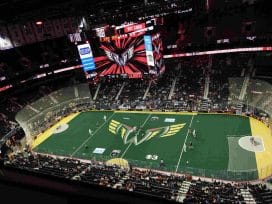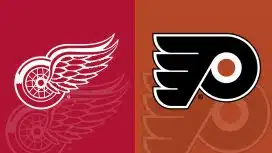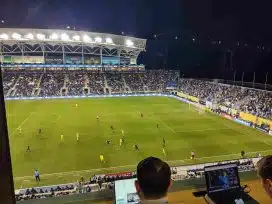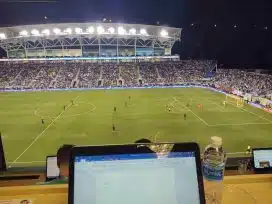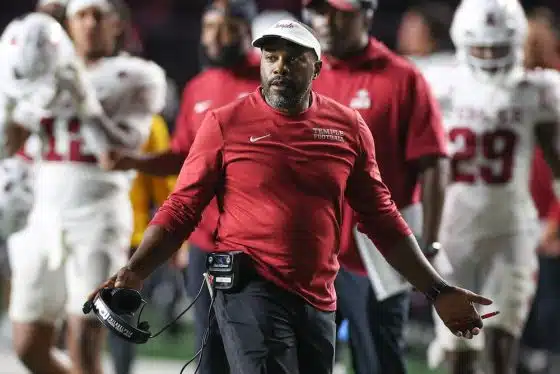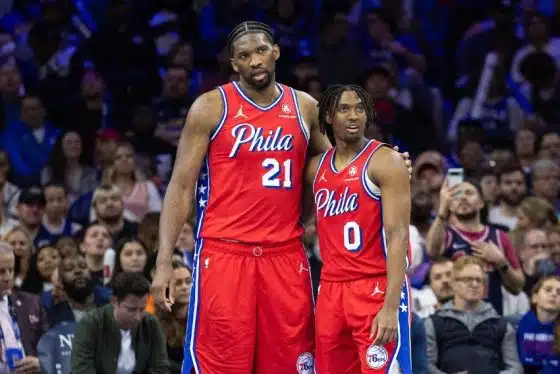Uncategorized
Working in Hockey Media: The Dreams and Realities
Tuesday night, I had the pleasure of talking before the game to Flyerdelphia's Bill Minchin, who was covering his first game from the Wells Fargo Center press box this season. It got me to thinking about my own first few games with credentials, and what a thrill it was.
It is not usually my style to write articles or blogs that put the focus on the media in general or myself in particular. I do not believe that "we" should be the story, nor do I think that our access to the teams engenders any sort of special entitlements or elevated status of presumed expertise.
However, it is not uncommon for aspiring writers to seek advice and to want to know what it is like to be around the team on a regular basis. Even doing periodic game night coverage with locker room access is only a small snippet of life in today's business.
Strictly from a style standpoint, there has been an increasing paradigm shift in the way hockey is covered nowadays. It's not even really a "blogger vs. beat writer" line of demarcation anymore, although the two sides still snipe back and forth more than they ought to.
Beat writers are expected to write blog-style pieces and blog sites sometimes have newspaper style pieces — punchy ledes, a cross-section of first-hand or properly sourced third-party quotes, etc. More and more mainstream sites make use of analytics areas that became the defining niche of some blog sites in the 2010s.
I was part of the first generation of web-based hockey writers — before the proliferation of blogs — who started out writing unpaid feature stories in exchange for credentials and then gradually built up to paid freelance. A select few of us were lucky enough to eventually make this our primary living.
My first credentialed game came during the Philadelphia Phantoms' inaugural season. By 1998, I regularly covered Phantoms home games at the Spectrum. During the 1999-2000 season, I got approved for my first single-game NHL credentials.
As a matter of fact, one of the earliest games I ever covered was Game 5 of the 2000 Eastern Conference Final to do a story on Flyers forward Valeri Zelepukin for the now long-since-defunct Pro Hockey Euro Report website.
The Flyers were one win away from a trip to the Stanley Cup Final, and I was there to write a piece on the path Zelepukin — a member of the 1995 New Jersey Devils team that beat the Flyers in the Eastern Conference Final en route to the Stanley Cup — had traveled since then, with a chance to return to the Stanley Cup Final.
In the 15-plus years since then, I gradually worked my way up to writing for bigger outlets — and getting paid for my work. Single-game credentials begat full-season credentials and covering selected road games (I'd cover more but the associated travel costs generally come out of pocket; whereas newspaper budgets reimburse for meals, plane fares and hotel stays.)
Finally, I got accepted into the Philadelphia chapter of the Professional Hockey Writers' Association and got an NHL Media card from the league, which I carry with tremendous pride. None of it would be possible without a supportive family behind me. None of it would be possible without a host of mentors and friends — too many to mention, but starting with Les Bowen, Tim Panaccio, Kevin Greenstein, John McGourty, Phil Coffey, Eklund, Randy Miller, PHWA chapter Wayne Fish, the IIHF's Martin Merk and Szymon Szemberg and Flyerdelphia's own Brian Startare — who have believed in me and helped me along the way.
I've also gotten to know numerous people in other segments of the media and realized just how much preparation goes into what they do. Mike "Doc" Emrick opened my eyes to what is really entailed in the TV broadcasting end, and I have gotten to befriend Flyers' TV play-by-play announcer Jim Jackson as well as radio counterpart Tim Saunders over the years. Those guys do a slew of homework long before they go on the air for a broadcast.
There is also good luck involved in simply hailing from Philadelphia and growing up around Flyers hockey. The Philadelphia Flyers have long had one of the very best media relations and PR staffs anywhere in professional sports. They are very, very generous when it comes to providing credentialed access and giving young writers from small outlets a chance to gain experience. In later years, I've also found the Dallas Stars to be accommodating and friendly.
Aspiring writers in certain other cities aren't so lucky. I won't name the teams but some organizations are such stringent gate keepers that they end up keeping out hard-working aspiring journalists from legitimate outlets in the name of weeding out those are not there to work.
If you do get credentialed,whether it is in Philadelphia or elsewhere, please treat it as a work day and not a "free ticket" to the game. Don't crowd around the locker room taking video (now a prohibited practice by order of MLB.com) or taking selfies in front of lockers. Don't spend all game posting to Facebook or Instagram.
Do allow the beat writers on deadline and TV reporters doing live cut-ins to get physically closest to the players and ask the first set of questions. If you are working on a feature story, do tell the team's media/PR reps ahead of time so they can get you the access you need to ask the questions you need to ask. Do introduce yourself to established media members — but not while they are working — and show respect for their experience in the field, which inevitably came along with a host of sacrifices. These are the ways to gain mutual acceptability.
If your ambition is to eventually make a full-time or even regular sideline supplementary income in hockey media, keep certain realities in mind:
1) If you are in it for the money, find another line of work. You won't get rich doing this. Actually, based on a number of hours worked to dollars earned comparative, the road to even making a livable primary-source income is almost prohibitively long.
2) Expect to make a whole lot of sacrifices. Crazy hours are involved — you work until you are done and then sometimes beyond that — and very difficult day-to-day choices sometimes have to be made in your personal life as to what you prioritize at a given time. The higher up you go, the more it pulls you away from family, conflicts with other work obligations (more on that in a second) and the higher the volume of material you will need to produce without sacrificing quality for quantity.
3) Be honest with yourself about what price you are willing to pay to do this on a semi-professional or professional basis. How badly do you TRULY want it? This is an all-out or all-in business, and sometimes a pretty ruthless one. Do you want to write as a hobby, to make a few extra bucks or is your aim to do it full-time? The further you move away from the hobby end, the more demand there is on your time and the more it pulls you away from whatever other job may be your main source of income. Bosses tend not to like that, and you can't blame them.
4) Understand that, even within this business, you will have to work within the parameters that your bosses set. Some website owners are hyper-driven (and downright ruthless and cutthroat) about generating traffic. Others are obsessed with breaking things before anyone else. Some are geared toward analysis or stats and still others are smaller niche outlets with a narrow focus. There is also a wide disparity in terms of deadline obligations and pressure.
In a future article, if people are interested, I will walk readers through "a day in the life" of covering practices, what goes on before, during and after a game from a work standpoint and other things that this job entails. There are a lot on intrinsic rewards that come along with the challenges.
Bill Meltzer is a columnist for Flyerdelphia. Follow him on Twitter @billmeltzer.


